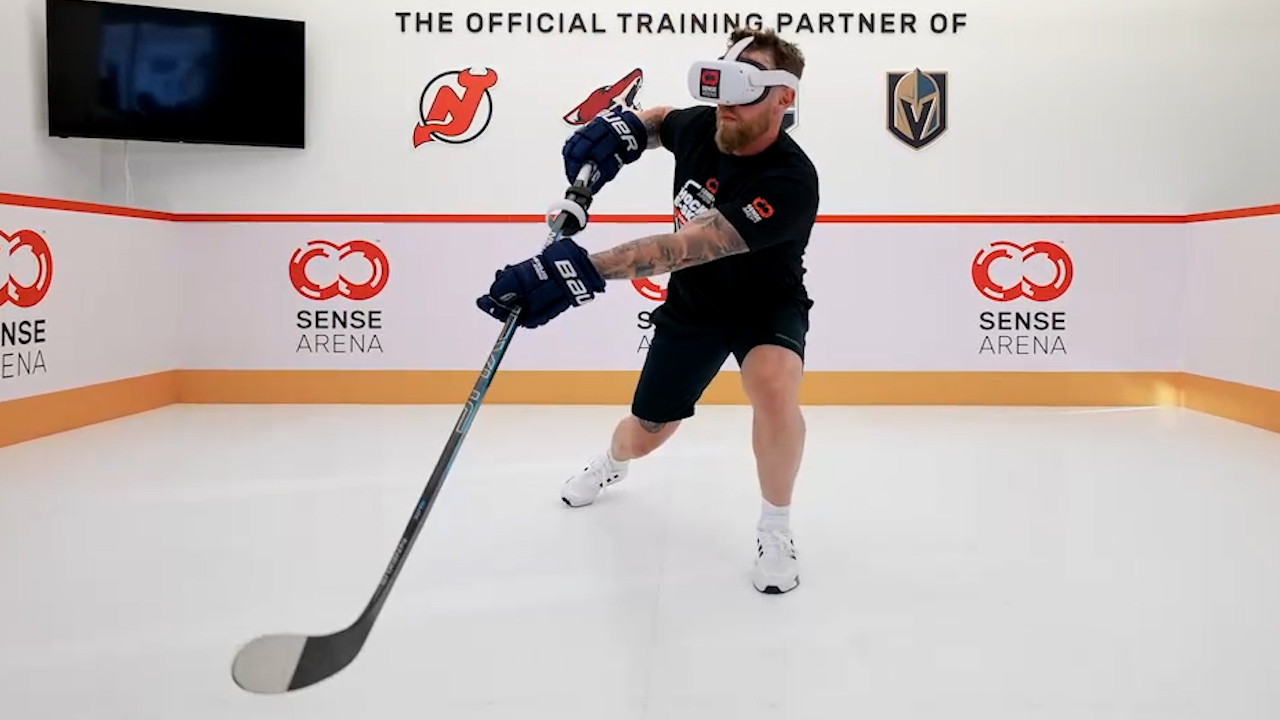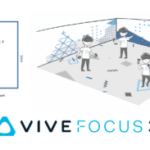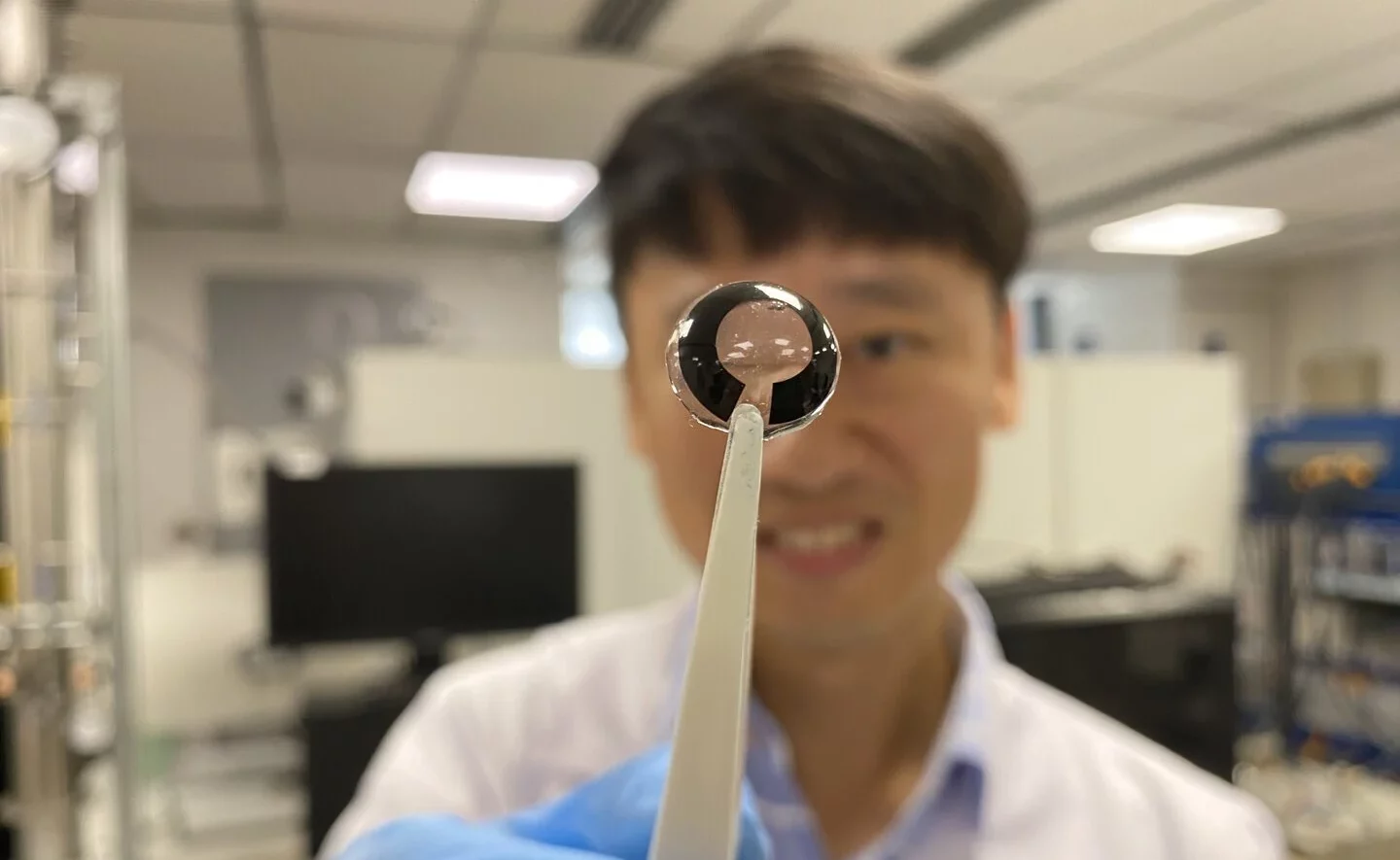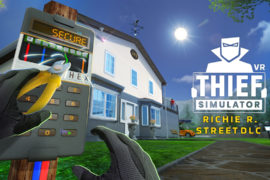Well, maybe not a pro…
Over the past several years we’ve seen various sports organizations begin to employ immersive technology as part of their player training regiments, whether it be the Los Angeles Dodgers employing VR technology as part of its batting practice regiment or an Australian skeleton racer using VR simulators to prepare for the Winter Olympics.
Sense Arena, a VR sports training provider based out of the Czech Republic, is one such company working to modernize the world of sports training through the use of immersive technology. The company works directly with major sports organizations to provide its players with an easy-to-use, but effective, subscription-based VR hockey training program. Using a combination of VR and haptic feedback technology, the program immerses players, both amateur and pro, in a virtual environment where they can participate in a variety of realistic drills and challenges designed to improve their “read and react” capabilities.
This week Sense Arena launched a partnership with live sports company AEG and professional NHL franchise the LA Kings to bring the VR training platform to both junior and professional Kings’ players at the LA Kings Training Center in El Segundo, California, marking the company’s first LA-based partnership.
“We are excited to welcome a category leader like Sense Arena into the LA Kings family,” said Kelly Cheeseman, chief operating officer, AEG Sports. “Whether it’s on or off the ice, we are always looking for innovative new ways to enhance our players’ training, development, and rehabilitation and this partnership helps us to follow through on this important commitment in the best way possible. Being able to leverage their cutting-edge technology has been a game-changer when it comes to giving our players a winning competitive edge.”
Sense Arena is less about improving your skills and more about sharpening your cognitive abilities. The program is designed to challenge your decision-making skills in both offensive and defensive positions. The idea is that by improving your multitasking and “Multiple Object Tracking skills,” you’ll perform better in important scenarios such as face-offs and transitions.
That said, there’s definitely a fair amount of stickwork involved. Sense Arena features its own 3D printed mount for the Touch controller, allowing players to use their actual hockey stick in VR. These mounts also feature their own dedicated motors, resulting in realistic haptic feedback every time you make contact with the puck. Sense Arena can be used in a professional training environment with a stick or on the go using the standard Touch controllers. Throughout the roughly 20-minute demo, I was coached on how to properly hold my stick and pass the puck to my AI teammates. These adjustments, while subtle, made all the difference in my performance.
I was taken through a variety of drills designed to test my skills on the ice. This included everything from playing keep-away with the AI to shooting on a guarded net. At the end of each round, Sense Arena analyzed my performance and provided me with a detailed breakdown highlighting important metrics such as my reaction time and accuracy. While I don’t see myself making a professional debut any time soon, I did see a noticeable improvement in my score after several drills.
“Athletic training in virtual reality has become a reality in many sports – hockey, baseball, football, soccer, cricket, tennis, and table tennis to name a few. The speed of development of XR and related technologies is so fast, that we only see the tip of a huge iceberg of innovations that is yet to come. The Kings took an active role in this, not only by using it but also by advising in forming the hockey VR training platform, already 16 months ago,” said Bob Tetiva, Founder and CEO of Sense Arena.
To learn more about the pros and cons of Sense Arena’s VR hockey training platform, I spoke with a Jr. Kings player who’d already spent a decent amount of time with the app. In his opinion, Sense Arena’s greatest strength is its accessibility. The platform can be used alongside a variety of haptic feedback technology or on its own using the core Oculus (Meta) Quest 2 technology. The app can even be used in a seated position, offering those suffering from injuries a way to hone their abilities off the ice while they heal. Some players even practice while wearing their skates, as demonstrated in the image below.
“Sense Arena is a new platform that helps goalies to train without being on the ice. This system can be used for goalies that are injured or coming off an injury. However, the most useful aspect of the Sense Arena system is being able to train without the added stress of physically putting equipment on and stepping on the ice. You can train at home or in your hotel room when you are on the road, reducing the stress on your body,” added LA Kings goaltending coach and Stanley Cup/Conn Smythe Trophy-winning goalie Bill Ranford.
The company’s partnership with the LA Kings is just the latest in a long string of collaborations with major organizations. Sense Arena has partnered with numerous companies over the years and currently supports over 1,200 installations in 28 countries. The company is focused primarily on hockey, though it has expressed interest in expanding into other sports.
For more information visit SenseArena.com.
Feature Image Credit: Sense Arena
The post Sense Arena VR Hockey Training Took Us From Amateur To Pro appeared first on VRScout.











